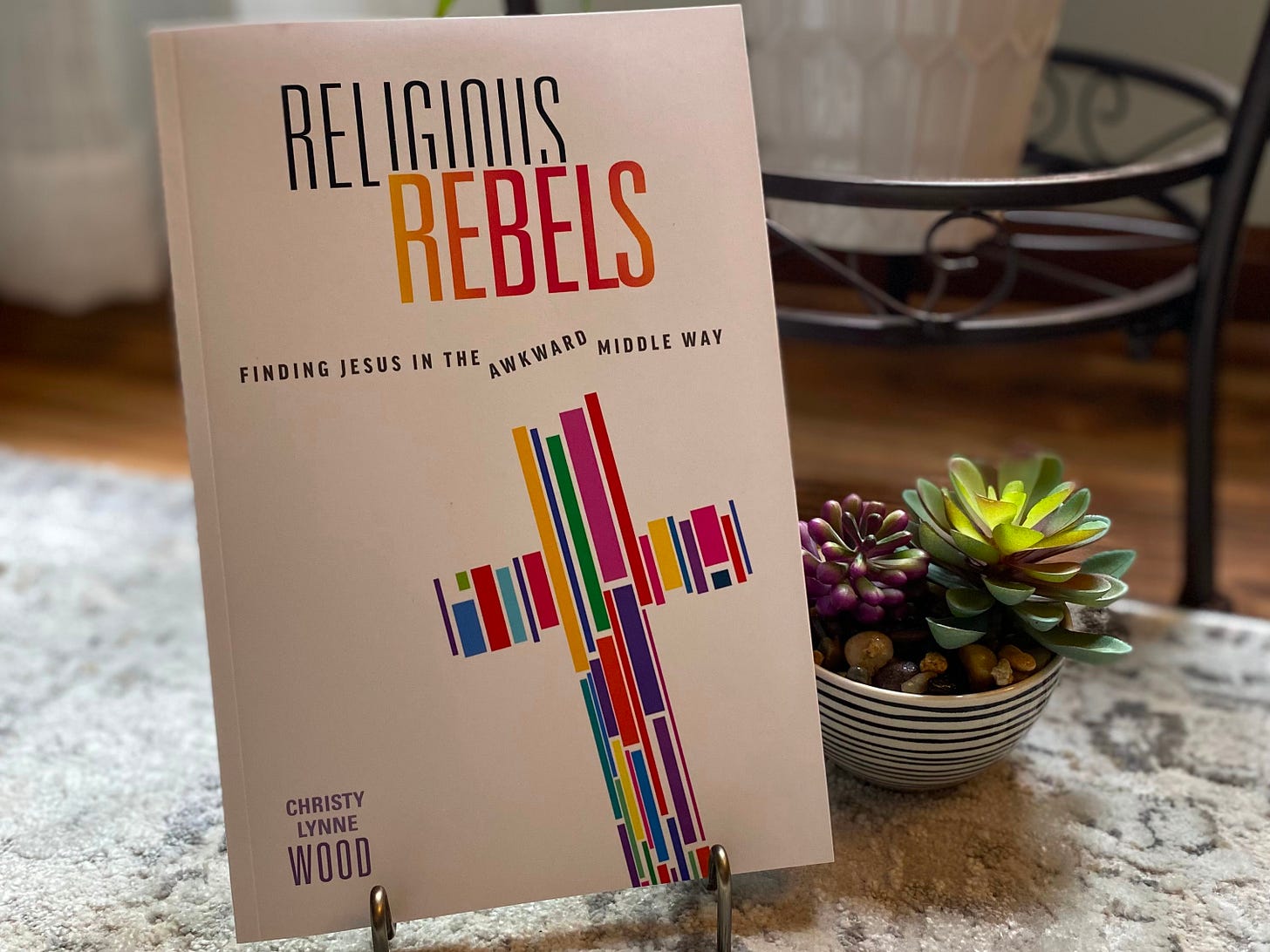“Religion is the business of appeasing the gods” writes Mike Cosper in his book, Recapturing the Wonder. As I read those words, suddenly everything made sense. I’d been trying to figure out why the Christianity of my cultic youth and the evangelical Christianity that had just burned us felt so similar. This was it: they both operated as systems that worked to appease God.

I had been a willing participant in the system until it turned on me. Until now, I’d never stopped to question or wonder. The scariest thing about religion is that it works for us, until it doesn’t anymore.
When I left Bill Gothard’s Institute in Basic Life Principles, I slowly slipped away. It was a gradual fade into what felt like the real world. In reality I slid into the evangelical Christian bubble. At the time, these worlds felt like polar opposites, but they were actually adjacent spheres with a frightening amount of overlap.
I married my wonderfully opposite husband and we went off to Bible school. They let me wear pants, didn’t control what I watched on Netflix, and seemed fine with me working while Josh took classes, so I assumed the school was safe. I didn’t notice that only men were allowed to take the classes on hermeneutics and exegesis. I didn’t catch on that the women’s classes were designed to create the perfect pastor’s wife.
We began working as youth pastors. I use plural words because we were a team, and every church got both of us even though they only paid my husband. I dutifully told the girls to dress modestly in one piece bathing suits and warned them about the evils of sex before marriage. It was purity culture light compared to the courtship expectations I’d faced, and I never stopped to question. We gave the teens a list of rules to follow because we cared about them, and I never noticed it was religion.
It wasn’t until the system turned on us—on me—that I stopped to think. When I stayed in my place, just one cog in the wheel doing my thing, religion worked. But as I noticed problems and began speaking up about them, I threatened the system. And instead of addressing the real problems, I became the problem to be eliminated.
This has happened to so many people so many times now that it’s horrifying. It’s like there is a secret script being passed around to evangelical churches and organizations on how to get rid of someone messing up the status quo. The most recent story I read was about a couple who worked with Mission Aviation Fellowship and tried to get help for legitimate concerns. I hate that these stories are so common. But I also find myself hopeful because with every broken story people are forced to wake up and realize religion doesn’t work.
There’s a cartoon that came out in 2018 called Smallfoot. It’s about a group of yetis who live on a tall mountain. They only know about their own world because they’ve never gone below the clouds. They have these painted rocks that tell them all the yeti traditions and no one questions the rocks—until they discover a smallfoot that supposedly doesn’t exist.
I watched this movie with my children a few years ago, and it hit home. When I finally began to ask questions and seek answers outside of evangelicalism, many of my beliefs fell apart. I found new questions to ask and beliefs to inspect. Like the yetis, there is a fear among many evangelicals that if we ask questions, we will lose all of our beliefs. We worry that we will discover none of it is real. But the little mountaintop bubble of American evangelicalism isn’t the only place to find truth.
My faith in God and my belief in Jesus is stronger than ever. I’ve loved getting to know Christians from a variety of denominations and faith traditions. Exploring and questioning has made my faith richer and deeper. In the place of certainty, I’ve discovered the beauty of nuance. I’m still a classical evangelical, but people have told me that I sound Eastern Orthodox or Episcopalian at times. I like that. I want that.
I don’t want us to follow a static, dead religion. I don’t want us to be caught up in tradition for the sake of tradition. I don’t want us to live in a state of fear, worried that questioning will lead to the loss of our faith.
This isn’t just about politics, power, or control. It’s not about money, inflation, or security. Those are all important but temporary. This is about a mindset and a perspective shift. It’s about how we see the world around us. There is much to be questioned and doubted. There is much to be taken apart and tossed. And there is a Jesus to be found who is much more than a god we need to appease.
As always, I'd love to hear your thoughts, questions, or comments. You can find me on Threads, Instagram, Facebook, in the Substack app, and on my website. I’d love to connect with you on any of these places!
My podcasts, Religious Rebels and Looking for the Real God can be found here on Substack, and on YouTube, Apple Podcasts, Spotify, iHeart Radio, or anywhere you listen to podcasts.
You can order an autographed copy of my book, Religious Rebels: Finding Jesus in the Awkward Middle Way by clicking on the button below. Or you can find it on Amazon.






I relate so much! It’s almost like this is what he meant in Matthew 16:25. I wonder. If we are willing to let go of what man has created, even in religion, and cling fast to what God has created, we get more life and freedom than we’d ever comprehend. In so many ways, I feel like my life began when I really met Jesus and let go of the rest of the dogma. It’s scary to question though, because you feel like you’ve been warned through fire and brimstone…like hell will actually open up and swallow you whole. But no. The more I questioned, the stronger my faith in Jesus got.
“At the time, these worlds felt like polar opposites, but they were actually adjacent spheres with a frightening amount of overlap.” Yes. As you know, I relate. And I’m finding out that more and more of us are out there!